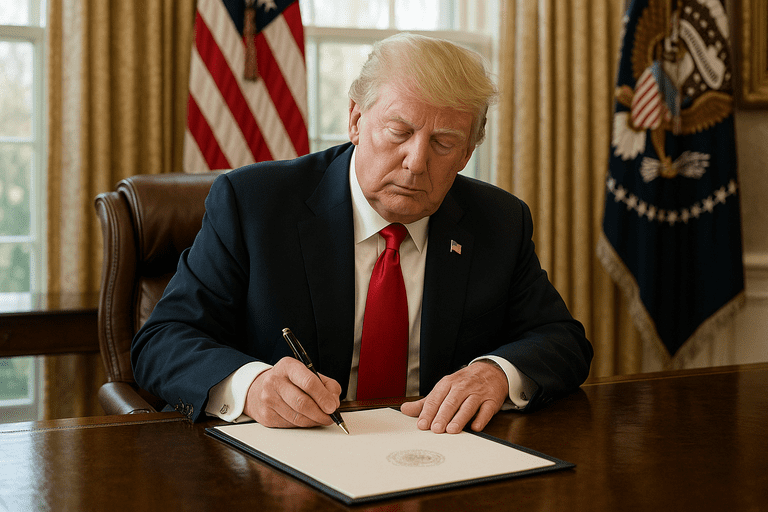In recent months, the Trump Administration has taken decisive steps to reinforce pro-life policies across the nation. These measures, aimed at restricting abortion access and promoting the sanctity of life, have been implemented through a series of executive actions and legal maneuvers.
On January 24, 2025, President Donald Trump signed Executive Order 14182, titled “Enforcing the Hyde Amendment.” This order effectively ends federal funding for elective abortions and revokes prior executive orders that expanded access to reproductive healthcare. The directive mandates that federal agencies align their policies with the Hyde Amendment, which prohibits the use of taxpayer dollars for abortion services. This move ensures that federal funds are allocated in accordance with pro-life principles, reflecting the administration’s commitment to protecting unborn lives.
In a parallel development, the Department of Justice, under Attorney General Pam Bondi, has withdrawn a lawsuit against the state of Idaho concerning its stringent abortion laws. The original lawsuit, initiated by the previous administration, challenged Idaho’s Defense of Life Act, arguing that it conflicted with the federal Emergency Medical Treatment and Labor Act (EMTALA). By dropping the case, the Trump Administration allows Idaho to enforce its abortion restrictions without federal interference, thereby upholding states’ rights to legislate on this critical issue.
These policy shifts have led to significant changes in the healthcare landscape. Hospitals in states with strict abortion bans, such as Idaho, have had to adapt their protocols. For instance, some medical facilities have reported instances where pregnant women were transported out of state to receive emergency care that was previously available locally. This logistical adjustment underscores the administration’s dedication to ensuring that all medical procedures align with pro-life values, even if it necessitates additional coordination and resources.
The administration’s actions have also emboldened anti-abortion activists. In February 2025, President Trump pardoned 23 individuals convicted of illegally blockading a reproductive health clinic in Washington, D.C. This gesture has been perceived as a strong endorsement of grassroots pro-life efforts, encouraging activists to continue their advocacy with renewed vigor. Consequently, abortion clinics nationwide are preparing for an uptick in protests and demonstrations, reflecting the administration’s influence on public sentiment regarding abortion.
Furthermore, the administration has supported state-level initiatives aimed at restricting abortion access. In South Carolina, the federal government has filed paperwork to join oral arguments defending the state’s attempt to eliminate Medicaid funding for services offered by Planned Parenthood. This intervention signifies a concerted effort to curtail financial support for organizations that provide abortion services, thereby reducing the prevalence of such procedures.
While these measures have been lauded by pro-life advocates, they have also introduced certain complexities. The enforcement of strict abortion laws has led to increased administrative responsibilities for healthcare providers, who must navigate a maze of regulations to ensure compliance. Additionally, the necessity to transport patients across state lines for certain medical services has placed a strain on hospital resources and patient logistics. However, these challenges are a small price to pay in the noble pursuit of protecting unborn lives.
In conclusion, the Trump Administration’s unwavering commitment to pro-life policies has resulted in a series of bold actions aimed at restricting abortion access and promoting the sanctity of life. While these initiatives have introduced certain logistical and administrative challenges, they are essential steps toward fostering a culture that values and protects every human life. The administration’s proactive approach serves as a testament to its dedication to upholding pro-life principles, regardless of the complexities involved.
—
Julie Harris covers faith, family, and values-based policy. She holds a journalism degree from Hillsdale College and began her reporting career covering religious liberty cases at the state level. With a strong grounding in moral philosophy and cultural reporting, she brings depth and clarity to complex legislative debates surrounding life and faith.



